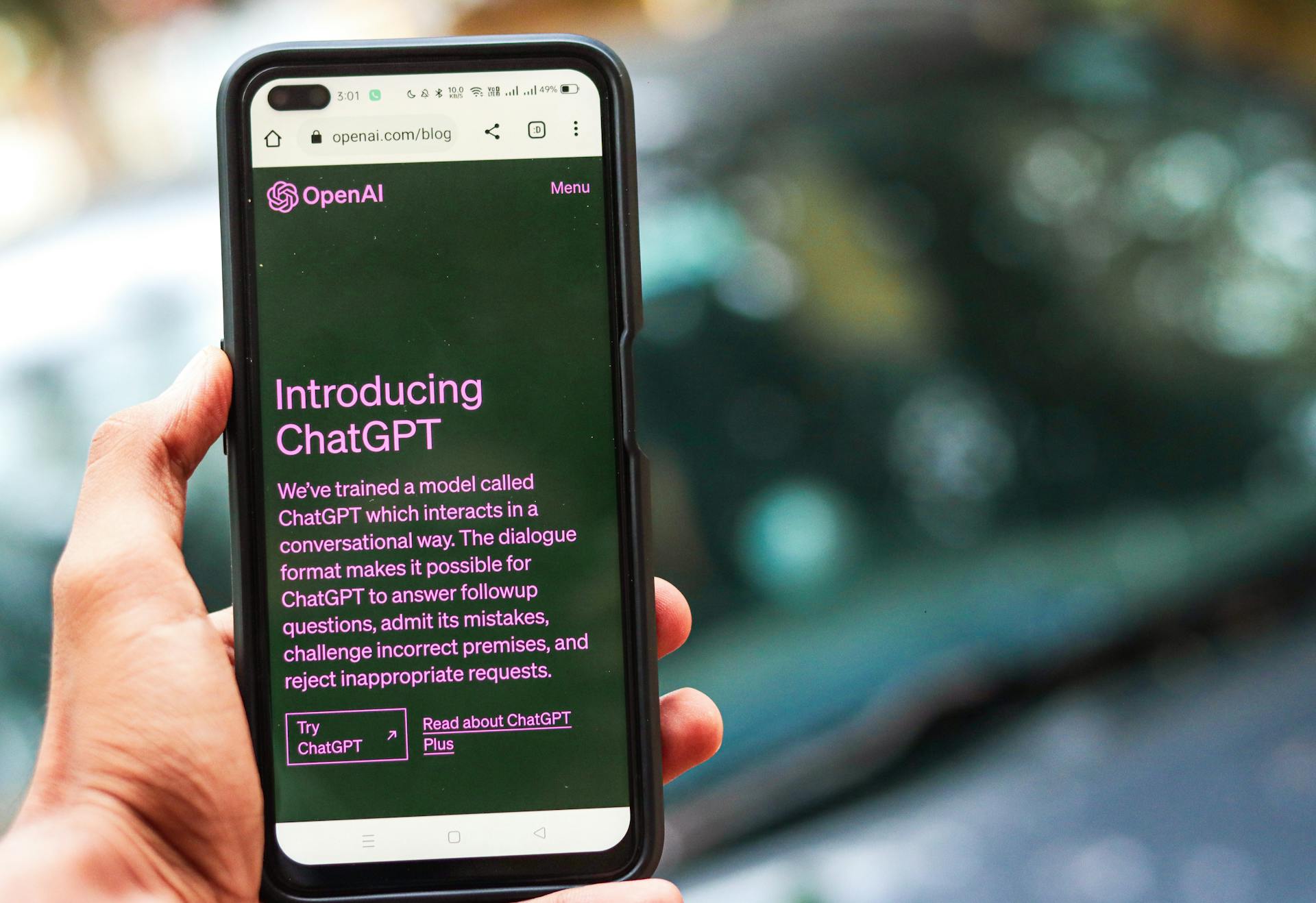
ChatGPT is a revolutionary language model developed by OpenAI, which has garnered significant attention in the artificial intelligence community. Understanding ChatGPT is crucial as it allows us to explore its capabilities and limitations.
In this blog post, we delve into the inner workings of ChatGPT and discuss its potential for both positive and negative applications. Moreover, we will examine strategies to bypass its limitations, while also considering the ethical considerations that arise in doing so. Join us as we explore the impact of successfully bypassing ChatGPT and its implications for the future of communication.
Understanding Chatgpt
ChatGPT is an advanced language model developed by OpenAI that has been making waves in the field of artificial intelligence. It is a state-of-the-art model that uses deep learning techniques to generate human-like text responses in a conversational manner. The underlying technology behind ChatGPT is based on a vast amount of training data along with powerful algorithms that enable it to understand and respond to a wide range of topics.
One of the key features of ChatGPT is its ability to comprehend natural language and generate coherent responses. It has been trained on a massive dataset containing parts of the internet, which helps it understand context and come up with relevant answers. This makes ChatGPT a valuable tool for various applications such as customer support, content creation, and language translation among others.
However, it is important to understand the limitations of ChatGPT as well. While it excels at generating text, it can sometimes produce incorrect or nonsensical responses. It may also struggle with handling ambiguous queries or distinguishing between fact and opinion. These limitations arise from biases in the training data and the inherent difficulty in capturing the complexities of human language. Therefore, it is necessary to use ChatGPT with caution and verify its responses for accuracy.
In certain situations, there may be a need to bypass ChatGPT’s limitations and improve its performance. Strategies to bypass ChatGPT can involve incorporating pre-processing techniques to filter out irrelevant or biased information from the training data. This can help mitigate some of the issues related to incorrect responses or biased outputs. Additionally, fine-tuning the model on specific domains or using ensemble models can also enhance its performance and make it more reliable and domain-specific.
| Advantages of ChatGPT | Limitations of ChatGPT |
|---|---|
|
|
Ethical considerations play a crucial role in bypassing ChatGPT’s limitations. It is important to ensure that the strategies employed for bypassing are ethically sound and do not compromise the integrity or usefulness of the model. Biases in the training data should be addressed to avoid spreading misinformation or propagating harmful stereotypes. Additionally, transparency in the decision-making process and involving diverse perspectives can help in making ethical choices while bypassing ChatGPT.
The impact of successfully bypassing ChatGPT’s limitations can be significant. It can lead to improved accuracy, reliability, and usability of the model in various domains. Businesses can benefit from more accurate customer support, content creators can have better assistance in generating engaging text, and researchers can leverage the power of ChatGPT for various experiments. However, it is essential to strike a balance between bypassing limitations and maintaining the ethical use of ChatGPT to ensure responsible and beneficial outcomes.
Limitations Of Chatgpt
ChatGPT, powered by OpenAI’s language model, has undoubtedly revolutionized the field of conversational AI. With its ability to generate coherent and contextually relevant responses, ChatGPT has made significant strides in advancing natural language understanding. However, like any other AI model, it is not without limitations. Understanding these limitations is crucial in order to effectively utilize ChatGPT while being aware of its potential shortcomings.
One of the primary limitations of ChatGPT is its tendency to generate responses that may seem plausible but are factually incorrect or nonsensical. Since ChatGPT relies on pre-existing human-generated text for training, it can sometimes mimic the biases and inaccuracies present in the data. This can lead to instances where the model generates responses that may not align with factual information or exhibit biased behavior. Being aware of this limitation is important as it highlights the need for context-specific fact-checking and verification when using ChatGPT in critical scenarios.
Another key limitation of ChatGPT is its inability to consistently maintain a coherent and logical conversation over extended interactions. While it exhibits impressive contextual understanding, the model may struggle to provide consistent responses, often deviating from the topic or losing track of the conversation. This limitation can be attributed to the model’s lack of long-term memory and its reliance on the immediate context. Despite its advancements, ChatGPT may still encounter difficulties in maintaining a coherent dialogue, especially in complex or multi-turn conversations.
The computational resource requirements of ChatGPT present another significant limitation. Due to the model’s size and complexity, it demands considerable computational power and memory to operate efficiently. This high computational cost not only limits widespread accessibility but also poses challenges for real-time and resource-constrained applications. Optimizing the model’s efficiency and addressing these resource limitations is crucial for maximizing its potential impact and accessibility.
It is important to acknowledge that these limitations are not insurmountable obstacles but rather areas for improvement. OpenAI has actively encouraged user feedback and suggestions to address these limitations and enhance the performance of ChatGPT. By recognizing and working towards overcoming these limitations, we can harness the full potential of ChatGPT while being cautious of its inherent weaknesses.
Strategies To Bypass Chatgpt
In recent years, Chatgpt has emerged as a powerful language model capable of generating human-like text. However, as with any AI system, there are limitations to its functionality. This blog post aims to explore strategies that can be employed to bypass Chatgpt, allowing users to overcome these limitations and achieve optimal results. Whether you are a developer seeking to enhance Chatgpt’s performance or a user looking for ways to improve your interactions, these strategies can prove to be valuable.
1. Refining the Prompt: One effective strategy to bypass Chatgpt’s limitations is by refining the prompt given to the model. By carefully crafting the input text, users can guide Chatgpt to generate more accurate and relevant output. This can be achieved by providing specific instructions, being explicit about the desired outcome, and including relevant context. By doing so, users can optimize the model’s responses and overcome any shortcomings.
2. Contextual Prompts: Another approach to bypass Chatgpt’s limitations is by utilizing contextual prompts. Rather than relying solely on a single prompt, users can provide additional context to guide the model’s understanding. This can be accomplished by incorporating relevant information or asking specific questions to make the desired output more apparent. By leveraging contextual prompts effectively, users can enhance the accuracy and coherence of Chatgpt’s responses.
3. Iterative Feedback: A valuable strategy for bypassing Chatgpt’s limitations entails using iterative feedback. Users can fine-tune the model’s responses by providing corrective feedback and gradually refining the output. This iterative process helps Chatgpt learn from its mistakes and improve its performance over time. By actively engaging in this feedback loop, developers and users can bypass Chatgpt’s limitations and achieve more desirable outcomes.
By employing these strategies, users can bypass the limitations of Chatgpt and unlock its full potential. It is important to keep in mind that while bypassing Chatgpt can enhance its performance, ethical considerations must also be taken into account. The responsible use of AI systems is crucial to prevent misuse or the creation of biased and harmful content. As developers and users, it is our responsibility to ensure that Chatgpt is used ethically, benefiting society as a whole.
Ethical Considerations In Bypassing Chatgpt
When it comes to the fascinating world of ChatGPT, there are various aspects to consider, including the ethical implications of bypassing its functionalities. ChatGPT, developed by OpenAI, is an advanced language model that is capable of generating human-like text responses. It has the potential to revolutionize industries such as customer service, content creation, and personal assistants. However, users have also discovered ways to bypass its limitations, raising important ethical considerations in the process.
One of the main ethical concerns surrounding the bypassing of ChatGPT is the violation of user consent. As with any technological advancement, it is crucial to respect the boundaries and permissions set by individuals or organizations. Bypassing ChatGPT without explicit consent can lead to privacy breaches or misrepresentation. For instance, if a user believes they are interacting with a human, but in reality, they are communicating with an automated system, it can raise trust issues and lead to potential harm.
Another ethical consideration is the potential misuse of bypassing techniques for malicious purposes. While some users may be genuinely interested in exploring the limitations of ChatGPT and providing feedback to OpenAI, others may have ulterior motives. This includes using bypassing techniques to spread misinformation, generate harmful content, or engage in illegal activities. The responsibility lies in the hands of individuals to use this technology responsibly and ethically.
- Additionally, the power dynamics between humans and AI should be taken into account. ChatGPT, despite its impressive capabilities, is still an artificial intelligence system. It lacks emotions, empathy, and a genuine understanding of human experiences. When bypassing ChatGPT, there is a risk of users relying too heavily on the system for important decisions or seeking emotional support. This imbalance can lead to dehumanization and a diminished sense of connection in human interactions.
- Moreover, the impact of successful bypassing of ChatGPT can have broader consequences on society. If the system’s limitations are openly exploited and widely known, it may undermine public trust in AI technology as a whole. This can hinder the progress and adoption of AI in solving complex tasks or assisting human professionals. It is therefore crucial to strike a balance between highlighting limitations for improvement and promoting responsible use in order to maintain public confidence.
| Pros of Bypassing ChatGPT Ethically | Cons of Bypassing ChatGPT Unethically |
|---|---|
|
|
In conclusion, the ethical considerations surrounding the bypassing of ChatGPT are complex and multifaceted. While it is important to explore the limitations of this innovative technology, it is equally crucial to do so responsibly and with the consent of all parties involved. Users must be mindful of the potential consequences and use their discretion to avoid misuse or harm. By navigating the ethical considerations surrounding ChatGPT, we can strive towards a future where AI and human interactions are mutually beneficial.
Impact Of Successful Bypassing Of Chatgpt
Impact of Successful Bypassing of ChatGPT
ChatGPT, developed by OpenAI, is a state-of-the-art language model that utilizes artificial intelligence to generate human-like text responses. While this AI model has revolutionized various aspects of communication and information processing, it is not without limitations. One such limitation is the potential for bias and inaccuracy in its responses. In recent years, researchers and developers have been exploring strategies to bypass ChatGPT’s limitations, aiming to enhance the reliability and quality of its outputs.
Strategies to Bypass ChatGPT
1. Fine-tuning and Contextual Prompts: One method to bypass ChatGPT’s limitations is through fine-tuning the model using specific datasets and prompts. By providing targeted training data and context, developers can improve the accuracy and relevance of the generated responses. This approach helps streamline the output and mitigate potential biases.
2. Human-In-The-Loop Approach: Another strategy to bypass ChatGPT’s limitations is by creating a human-in-the-loop system. This involves incorporating human reviewers who assess and filter the generated responses. The reviewers can provide feedback, correct inaccuracies, and guide the model towards desirable outputs. This iterative process helps refine the AI’s responses and reduces the risk of misinformation or biased content.
3. Ensemble Methods: Ensemble methods involve combining multiple AI models, leveraging their collective intelligence to generate more accurate and reliable responses. By utilizing a diverse set of models and incorporating mechanisms for voting or consensus, developers can bypass ChatGPT’s limitations and create a more robust and trustworthy AI system.
Ethical Considerations in Bypassing ChatGPT
| Advantages | Challenges |
|---|---|
| 1. Enhanced reliability and accuracy | 1. Ensuring the ethical use of AI |
| 2. Reduction of biases and misinformation | 2. Maintaining user privacy |
| 3. Better alignment with user intentions | 3. Addressing potential legal ramifications |
While successful bypassing of ChatGPT can have a profound impact on the quality and reliability of AI-generated responses, it is crucial to consider the ethical implications. Developers and researchers must prioritize the responsible use of AI technology and ensure that the bypassing strategies adhere to ethical guidelines.
The Impact of Successful Bypassing
The successful bypassing of ChatGPT can lead to several positive outcomes. First, it enhances the reliability and accuracy of the generated responses, making the AI model more trustworthy and valuable in various domains, such as customer service or educational applications. Second, successful bypassing can significantly reduce biases and misinformation, preventing the propagation of false or misleading information. Third, it improves the alignment between user intentions and the generated outputs, enhancing the overall user experience.
However, it is important to recognize the challenges associated with bypassing ChatGPT. Ethical considerations play a significant role in ensuring responsible usage and avoiding any negative consequences. Developers need to address issues such as ethical use, user privacy, and potential legal ramifications when implementing bypassing strategies.








